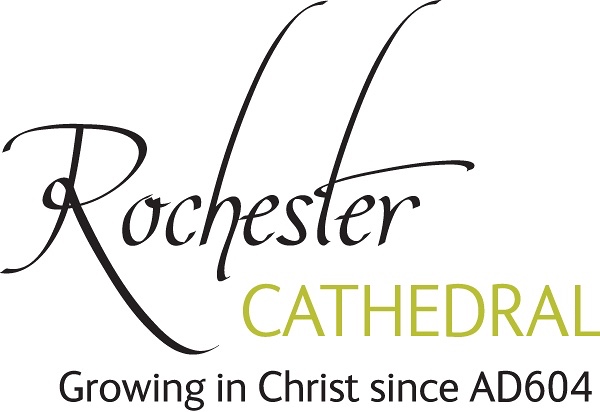Calendars for bloodletting, 13th century
/![Artificial Intelligence-generated image produced using DreamStudio [accessed 03-08-2023]: ‘A medieval Benedictine monk sitting in front of a fireplace in a medieval hospital with a servant standing by with a bowl and linen.’ Find out more: rochestercathedral.org/research/ai Artificial Intelligence-generated image produced using DreamStudio [accessed 03-08-2023]: ‘A medieval Benedictine monk sitting in front of a fireplace in a medieval hospital with a servant standing by with a bowl and linen.' Find out more: rochestercathedral.org/research/ai](/s/bloodletting-adhm.jpg)
Calendars for bloodletting 13th century
A calendar for bloodletting. Transcription and translation of Custumale Roffense, folios 4r-5r by Jacob Scott.
Transcription (pending review)
4v
Similiter ultima dies exeunte decembre. Qui tres dies
cum magne diligencia obseruanda sunt quia omnes ue-
ne time plene sunt. Icarto qui in istis tribus diebus ina
dies. Aut terte infra quatuordeam [?]ietur. Et si auta’
mandicauit hiis tribus diebus masculus aut[?] femina an’
quadraginta dies morietur. Et si mascl’s ut[?] femina[?] nas-
atur: mala sine dubio morte morietur. Item [?] alii
tres dies ami noctibus suis in quibus femina numquam
concipitur. Et masculus siquis in hiis tribus diebus et no[?]
tribus conceptus fuerit. Et natus corpus illius nunquam
corrumpetur usque indiem uidicii Uidilicet ultimus does
Decembris. Et duo primus January. Rari anut qui hoc scui’t
et uerum est. Item sunt duo dies in unaqua que linanone
cuiusque mensis in quibus quodamique in ceptum feurit: tar
de aut [?] per [?] effectum. Id est in Januari
cum luna est tertia aut quarta. In februario quinta et
octaua. In maio octaua et [?]. In iunio quinta et ui
cosima quarta. In ilio tertia et tertia decima. In august
do octaua. Et tertia decima. In septembri quoque octaua [?]
tercia de ami. In october: quinta et duo [?]ima. In nouem-
bui quinta et nona. In decembri tercia et [?] decima.
Hoc uerum est obseruet qui uult. Item sunt quinqui-
ginta tres dies. Decem et ecto ante kalendas augusti
triginta quinque post kalends inquibus perhibetus omnibus ho-
minibus sanguinem minuere. Et pocionem accipere Me-
dia etiam qui uel tenuem medendi. Habent sciennam.
Hiis diebus solent et in se et in aliis hoc ipsum omnino
euttare. Nam eo intepore dicitur stella ista splade-
re que non canis ut quidam putant. Set cana [?]
nine. Id est ab illius temporis albadine uocatur. Cuis
5r
natura. Igneam et quasi ebullientem uim ha-
bet. Set que ea tempestate calor solis et illius stelle
simul adea duplicatus. Quod humana corpora me-
dia in nocte sicut inper meridie sudant. Et tument
et in fanc[?]. Et sepe crepant Quoad si qualibet oc
Ca[?]e super hoc ledantur. Fuint ualde infirmo
[?]a. morti quo propinqua. Hiis etiam diebus omnia
senera serpentium que in mundo sunt et reput’
[?]o uolant. Nos dies antiqui canitulares uota
bant. Id est albos siue canos.
In nomine patris et dilli et spiritus sancti amen.
Uers-
le soleil leuant. Inut deii altanc sun liure [?]
samein sancti [?] tent anglos ini
uindrent scwant madame saciente maria
len cuntra. Duos dist [?] dunt inens uel
tristes. Dune [?] [?]tre size. Bele mere duce
mere peruuance mere. Al dei in est le[?] al-
qu[?] ine [?[ent. Nonate ueinos. Duas dist
ele [?] fic. Maldte [?] le felim. Od tei I od
[?]mei. Et od le seint espirit. Od le soleil et odla
lune. Et od tute creaun .e. Maldit seit le felum.
od noef mustiers. Et od noef altiers. Et od no-
ef prestres curunes, Dubbe[?]. et a parreilles
cum ala messe chanteir. Aliur de noela
pres ico ke deu fu ne maldit suit le delun.
od tute la granele de mer. Et of tutes
les gutes de sol. Maudit seit le felum. Od uis
les seingnurs ki adurent uis et mis la
sur lui ne seit chief ne da le sue ratine
5v
Ia dampne deu ne place kele felun ne uiue. Plater noster
In honore patris et filii et spiritus sancti. Et Sancte Marie. Quant
fud deu ne encrisme fu baine en trisme et in oile ke-
sest mal ne uus doile. doile ne crotule . ne rande net aule.
Pater noster Per singruim crucis. Tim debes tangere
terram de manu tua.
Translation (pending review)
Saint Bede said that there are three days in the month of February, that is, that day of February, the sixth of the Kalends of March, the 10th day of the Kalends of March, the 12th. In which you follow Marel's born fire taro eirs in corruption will remain until the day of the dicii. Again. Alistrel days are. In which there is no need for a person to be allowed to pass through blood on any occasion. or to take a potion. That is the last Monday in April. And on the first Monday in August.
Similarly, the last day at the end of December. Those three days must be observed with great diligence, because they are all full of time. Icarto who in these three days in a day. Or a third will go below the quartet. And if a man or a woman begs during these three days, shall he die forty days? And if a man's nose be like a woman's, he will surely die an evil death. Again, the other three days I love with their nights in which a woman is never conceived. And if a male was conceived in these three days and no[?] three. And the body born of him will never be corrupted until the day of Uidilicet, the last day of December. And two on the first of January. It is rare to know that this is true. Also there are two days in each of the linanones of each month in which each one fires into the hilt: tar de or _ by _ effect. That is in January when the moon is the third or fourth. On the fifth and eighth of February. On the eighth of May and _. On the fifth of June and the fourth of June. In the thirteenth and thirteenth In August I give the eighth And the thirteenth. In September also the eighth _ third of the love. In October: the fifth and two bottoms. On the fifth and ninth of November On the third and tenth of December It is true that he will obey. Also there are fifty-three days. Ten and eight months before the Kalends of August, thirty-five after the Kalends, it was given to all men to reduce the blood. And to receive a potion, even those who have a thin remedy. They have knowledge. In these days they are accustomed both to themselves and to others. For it is said that the star shines at that temperature, which is not a dog, as some think. Set cana _ nine That is from that time it is called albadine. To whom
nature. It has a fiery and as if boiling water. Let it be that in that storm the heat of the sun and of that star at the same time was doubled. That human bodies sweat in the middle of the night as well as in the middle of the day. And they swell and in _. And they crack the hedge. They were very weak. how close to death Even in these days all the old serpents that are in the world are flying. We wish the old days of the kennels. That is, white or grey.
In the name of the Father and of the Lord and of the Holy Spirit, amen.
Uersle soleil leuant. Inut the gods, at the height of their sun liure _ samein sancti _ tent the English ini ini indrent scwant madame saciente maria len cuntra Two dist _ dunt contained or sad. Dune _ size. Bele mere duke mere peruuance mere Al dei in is _ _ ine _. Don't forget the wines. Two dist ele _ fic. Maldte _ le felim. Od tei I od _. And od le seint espirit. Od le soleil et odla lune. And od tute creaun .e. He eats the cat. od noef mustiers And od noef altiers. And od no- ef presters curunes. and from the parreilles with winged harvest chanteir Another de noela pres ico ke deu fu ne cursed suit le delun. od tute la granele de mer And of the protection of the drops of the sun. He curses the cat. Od uis les seingnurs ki adurent uis et mis la sur lui ne seit chief ne da le sue ratine.
Already damnne deu ne please kele felun ne iue. Our plate in honor of the Father and the Son and the Holy Spirit. And Saint Mary. Quant fud deu ne encrisme fu baine en trisme et in oile kesest mal ne uus doile. Doile do not crotule. don't run out of the hall. Our Father through every cross. Tim you must touch the ground with your hand.
Explore the history and archaeology of the Priory of Saint Andrew and find out more about green heritage at Rochester Cathedral.
The circa 1235 Custumale Roffense (‘customs book of Rochester’) is a detailed survey of rents and services (‘customs’) due the monks rich in details on the day-to-day running of the Priory.
Explore the records of the medieval Priory of Saint Andrew relating to the infirmary and medieval medicine.






